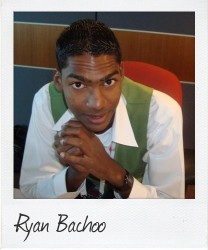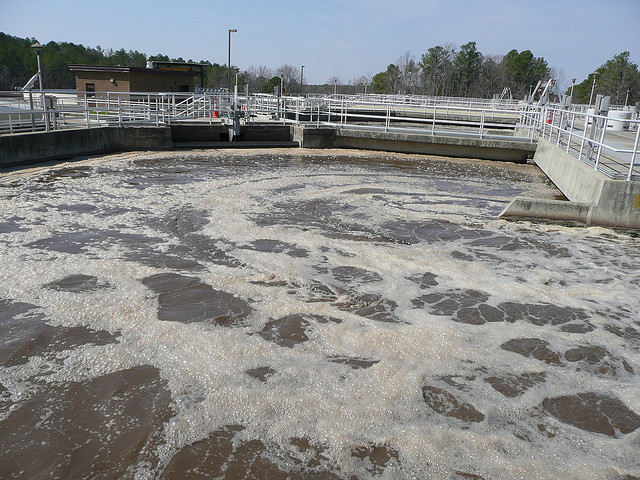SIDS 2014: “Providing SIDS with water, sanitation, food security and waste management"
August 27 Small island developing states are especially vulnerable to external economic and environmental shocks. At the Third International Conference on Small Island Developing States in Samoa, 1-4 September, the Commonwealth is partnering with the United Nations, governments and international organisations to help build the resilience of these countries.
Small island developing states are especially vulnerable to external economic and environmental shocks. At the Third International Conference on Small Island Developing States in Samoa, 1-4 September, the Commonwealth is partnering with the United Nations, governments and international organisations to help build the resilience of these countries.
Ryan Bachoo, 25 a Commonwealth Correspondent from Trinidad and Tobago, argues the conference is an opportunity to examine resources that will yield clean water, sanitation and food security for SIDS.
It is not uncommon for small island developing states to feel like David standing in front of Goliath. There are currently 52 small island developing States in three geographic regions, with a combined population of 63.2 million people. (United Nations) So if we put them all together, they would still be four times smaller than the United States. They would, however, be about the population of Britain or France.
These developing island states, though, are scattered in remote locations around the world. Their populations could be from a few thousands to just over a million in some states. The size and resources of these nations make issues such as water, food and waste a frightening challenge even in the 21st century.
When it comes to water and sanitation – or rather lack of sanitation – the figures are staggering; 1.1 billion people lack access to safe drinking water, 2.6 billion people lack adequate sanitation and 3.4 million people die every year from a water-related disease. Fixing the water problems of these billions of people goes beyond just quenching a thirst or taking a shower. Clean water prevents water-borne diseases such as cholera, diarrhoea and dysentery. Remember, one in five child deaths are due to a water-related illness.
In 2010, UN Secretary General Ban Ki-Moon said, “More people die from unsafe water than from all forms of violence, including war,” and that’s essentially what SIDS are fighting – a water war. Perhaps it is time then that war-like action is taken. Perhaps it is time the world started throwing money behind water systems like it does behind war, because it will take a herculean effort. The world is at a stage where we can now heavily invest in systems such as solar-powered water pumps, rainwater harvesting, water distillation and sand and earth water dams for rural areas without proper water sanitation systems. My favourite principle comes from an idea the non-profit organisation called The Hunger Project implements throughout their journeys – teaching communities to be self-sufficient.
If, in every community, men and women can be taught how to help themselves by operating the necessary water-related equipment, then we will not find ourselves helping those affected by poor water sanitation, but instead working with them to achieve a common goal.
Yet, as scarce as water is, there seems to be an overwhelming influx of food in many small island developing states. In Trinidad and Tobago, a population of just over a million people imports $4 billion worth of food annually. (Trinidad Guardian) It gets worse – Barbados’ population of 283,221 has a food bill in excess of $700 million. (Barbados Nation) Again, the figures are staggering. Only in 2006, analysts suggested that the Caribbean region’s food import bill stood at US$5 billion. (Trinidad Express) So when did Caribbean nations get tired of feeding themselves? With such high food importation bills, it would only seem obvious that farmers in SIDS have been sorely discouraged to carry out their trade.
This is where the change needs to start. Farmers need to be motivated to feed their communities, towns, cities and countries. Governments need to make locally produced food easier and more accessible to citizens, and this can be done by providing farm workers with bursaries and gratuities for producing local food. In turn, when many nations start producing crops which their climate allows, governments can start supporting trade through an open, fair, transparent and rules-based trading system. Agricultural trading is imperative in today’s globalized world, but it should be done in a practical and fair manner. Sadly, according to the World Health Organization, there is enough food in the world to feed everyone adequately but this is not happening. Too much food is being wasted.
It either goes down the drain pipe or goes into our garbage bins and then off to the dump, which is another aspect of life SIDS need to improve on – waste management. Waste management isn’t as easy as it may seem though. In 2012, Americans generated about 251 million tons of trash and recycled and composted almost 87 million tons of this material, equivalent to a 34.5 per cent recycling rate. (Environmental Protection Agency) That’s not great, is it? Achieving compliance with recycling programs is complicated. That is why it is important SIDS begin with the fundamentals of waste management. Recently, in Trinidad and Tobago, special metal bins with individual sections for plastic, glass bottles and paper were placed throughout the capital city in Port of Spain. Users tended to ignore the different sections and openly used whichever section was more comfortable to them. A practice that is trivial in developed nations is a challenge for SIDS. This is down to a lack of experience and education in waste management.
The culture of Trinidad and Tobago has been for many decades of not separating garbage in the disposal process, so it is now difficult for many citizens to adapt. It is like this in many SIDS. Waste management practices will have to start in schools where young people can grow into the habit of recycling, understanding what recycling is about, and knowing the importance of recycling. That is why governments need to place emphasis on waste management being made part of their country’s curriculum at all levels.
SIDS face many challenges to counteract problems in the modern world, and it is only through dialogue such as those at the International Conference on Small Island Developing States can we really catch up with the developed world.
SIDS 2014
Learn more about the Commonwealth’s role at SIDS 2014:
thecommonwealth.org/sids2014
Learn more about the conference:
sids2014.org
Join the conversation online:
Twitter: @commonwealthsec
Facebook: facebook.com/commonwealthsec
hashtags: #islands2014, #cwsmallstates, #commonwealth
photo credit: jumpingspider via photopin cc
………………………………………………………………………………………………………………
About me:
“Hi, my name is Ryan Bachoo. I’m a Journalist and Public Relations Practitioner from Princes Town in the twin island of Trinidad and Tobago. I’ve moved into the field of Mass Communication now. I currently work for the West Indies Cricket Board, protecting the online image of West Indies Cricket.
I’ve been a Broadcast Journalist at Cable News Channel 3 for three years. For the Commonwealth Youth Secretariat, I write on topics of politics, war and economics.”
Ryan Bachoo
Journalist & Public Relations Practitioner
The People’s Writer
I speak for those who have no voice!
…………………………………………………………………………………………………………………
Opinions expressed in this article are those of the author and do not necessarily represent the views of the Commonwealth Youth Programme. Articles are published in a spirit of dialogue, respect and understanding. If you disagree, why not submit a response?
To learn more about becoming a Commonwealth Correspondent please visit: http://www.yourcommonwealth.org/submit-articles/commonwealthcorrespondents/
…………………………………………………………………………………………………………………




